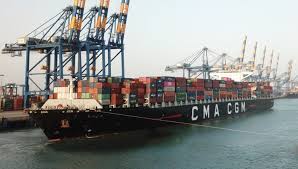According to Uddhav Kumar, Co-founder and CEO, Lynkit, navigating the ever-changing logistics terrain presents formidable challenges in managing end-to-end supply chains. Pressing issues such as demand volatility, global disruptions, sustainability, and technology adoption demand adaptability and innovation.
Advanced solutions integrating AI, ML, blockchain, and IoT offer real-time insights and optimisation tools. These empower clients to tackle demand fluctuations, enhance visibility, and embrace sustainability. Continual evolution and expansion of services enable businesses to flourish amidst the turbulence of today’s business environment.
Supply chain resilience
In the logistics sector, resilience is paramount. The approach centres on the integration of cutting-edge technologies, emphasising multiple logistic aggregations and real-time visibility across various platforms. In a recent disruption, a client effectively used real-time insights to reroute assets, mitigating substantial delays caused by an issue in one part of India.

This showcases the power of real-time visibility and unified platforms for agile decision-making. Additionally, certain platforms expedite dispute resolution through smart contracts, ensuring smooth transactions during disruptions and fostering trust.
The solutions should go beyond tracking in-transit movements, adding predictability to in-plant production, reinforcing supply chain resilience, and consistently delivering value.
Supply chain metrics
Performance metrics are vital in logistics for optimising supply chains. Companies excel in key areas like streamlined document processing, swift freight invoice handling, and theft prevention. Driver and transportation efficiency metrics improve reliability and timeliness.
Additional optimisation includes transportation costs, warehouse efficiency, and supplier performance. These metrics empower logistics providers to stay competitive and adaptable. Thorough tracking and analysis ensure continuous improvement in end-to-end supply chain management.
Tech-driven logistics
Looking ahead, the future of end-to-end supply chains in the logistics sector is poised for significant transformation, driven by technology and innovation. Key technological advancements are reshaping supply chain management.
Through the integration of AI, IoT, and cutting-edge technologies, one can empower businesses to navigate an environment where efficiency, security, and cost-effectiveness are paramount. Embracing these innovations is essential to staying competitive and meeting the evolving demands of the logistics industry.
Supply chain synergy
Emphasising enduring relationships, customization, ongoing support, and stakeholder integration is crucial. These elements have historically fuelled innovation and success in the logistics sector. The long-term supply chain strategy prioritises tailored solutions, continuous support, and collaboration, making these enduring partnerships the foundation of logistics industry success over time.











